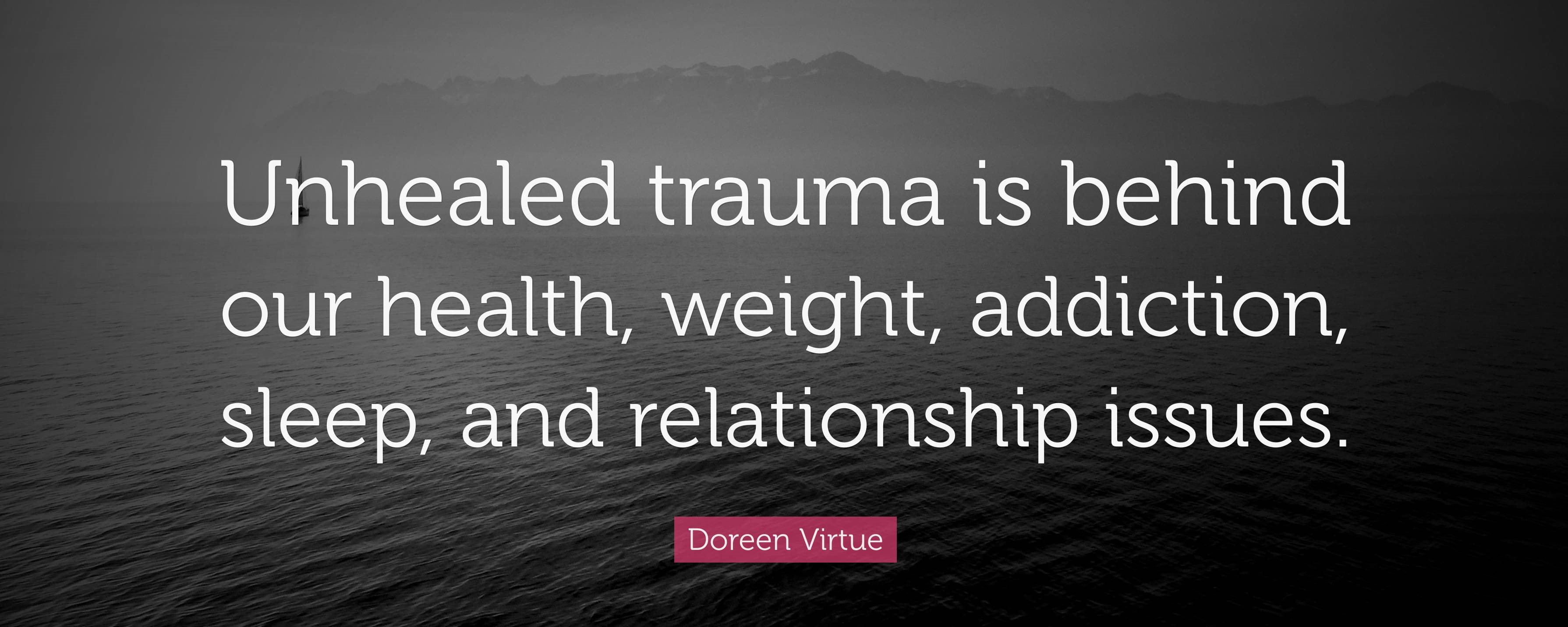Trauma is not what happened; it is how our bodies responded to an overflow of stress and emotional isolation.
Childhood trauma is unmetabolized pain that speaks to a lack of support that we once needed but never got.
Our sensitivities to the world and our emotional experiences are different, but our adversity can be evaluated with a few simple questions:
Did we ever feel unhappy or sad as a child?
Most of us can agree that we did, and some of us had increased needs for an adult to help us navigate the rocky emotional terrain we encountered. The more emotionally sensitive we were, the more we needed the atonement and connection of a parent to guide us.
Who did we speak to about that emotional pain?
By the time most of us have memories that we can recall, we usually report the same answer: nobody.
Who would we have wanted to speak to?
It would be a rare person who disagreed: the person we were closest to, usually a parent or caregiver.
As an adult, if we think of parenting a child who is unhappy or sad and our son or daughter does not talk to us about it, how would we explain it?
Most of us would, at first, feel like a failure. Then we would conceptualize the many versions of “why”:
We were busy.
We were not tuned in or paying attention.
We were stressed.
We were multitasking.
We didn’t have the skills to manage our own emotions, let alone our child’s.
The child didn’t want to burden us, or our child doesn’t feel safe or comfortable.
How happy is it when we, as a child, could not go to our own parents with pain, sadness, sorrow, worry, or fear? Not very happy at all.
The myth of our own happy childhood is not wrong; it may simply be incomplete.
No matter what happens or how much one is loved, the effects of repetition for different reasons and in different ways have always added up. The love felt by parents does not automatically translate into love experienced by one, and none of the vacations or material goods could ever make up for that unseen and unmetabolized pain.
The brain develops with the constant emotional stress that was never resolved, never supported, and never healed.
It does not take major adverse experiences for the circuits of the brain to change. No matter the adults’ intent, desires, or dreams, a lack of atonement—a collection of emotionally hurtful incidents and a gap created by stressed out or busy parents—early in life means the architecture of the brain connections and chemicals are altered.
Our brain’s circuitry develops differently than it would if we have an empathetic, abiding witness to be present for us and help us process our experiences.
Trauma is not what happened; it is how our bodies responded to an overflow of stress and emotional isolation.
We can begin to heal our unhealed developmental traumas, otherwise known as childhood wounds, first by recognizing the myth of “the happy childhood” and then by having compassion for both our caregivers and ourselves.
By acknowledging that what we once deemed a childhood nirvana was an incomplete version, we can begin to better understand why we have adult coping mechanisms and triggers. These patterns, such as anxious ruminating or avoidance, once helped us survive.
We can begin to feel acknowledged and witnessed in our experience—start to heal the wounds left behind by childhood—and rewire our brains.
We can begin to gift ourselves the book we never got in childhood. ?


